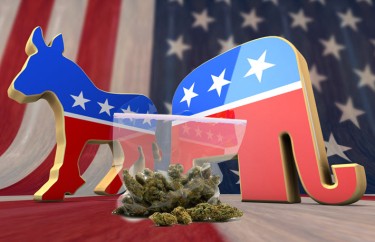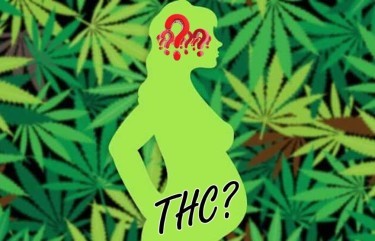Cannabis News
Why Marijuana Legalization is a Republican Issue
Published
5 months agoon
By
admin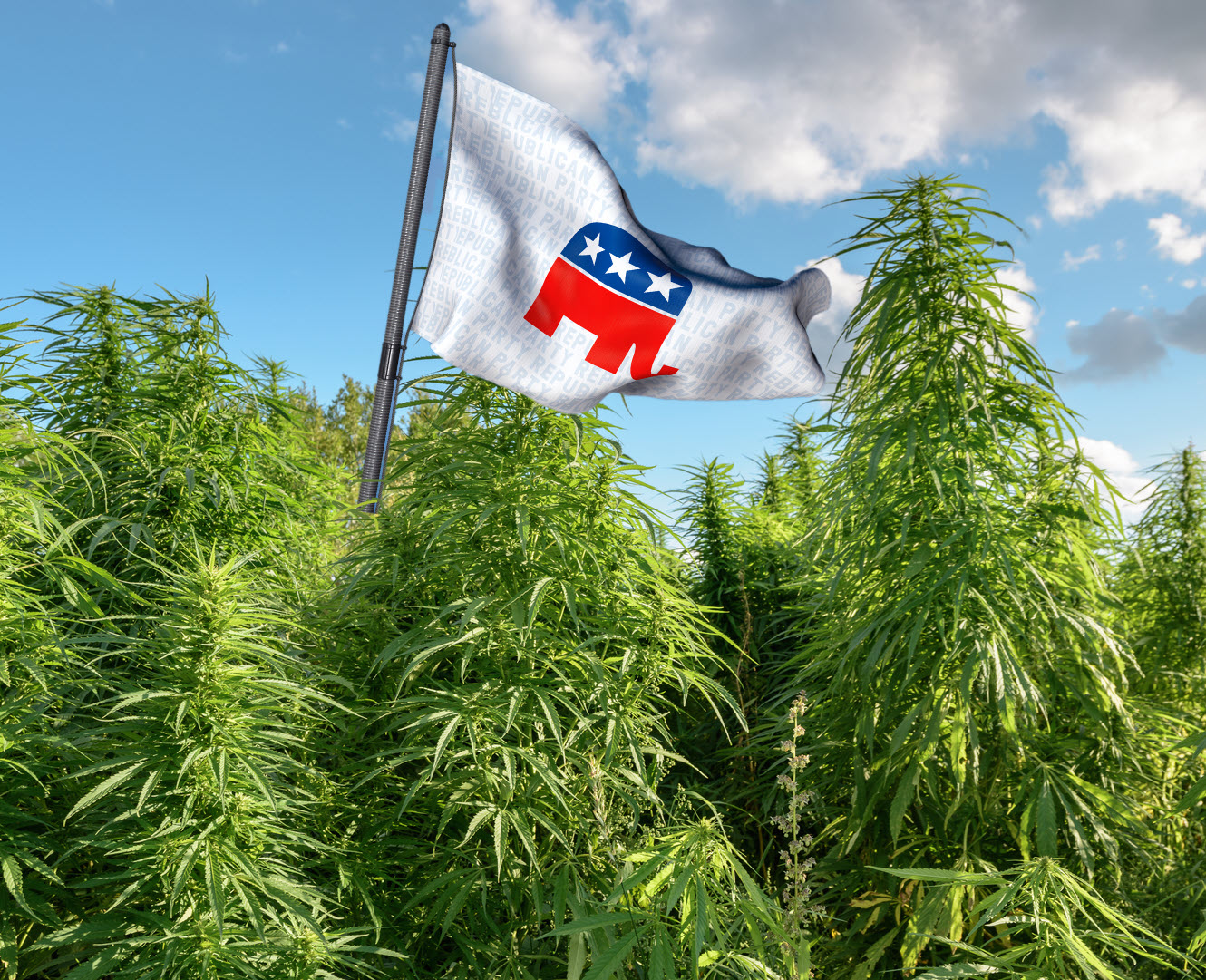
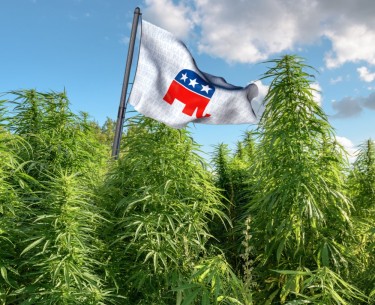
Why Marijuana Legalization is a Republican Issue
Despite growing public support for cannabis legalization, many Republican-led states continue to maintain strict prohibitions on recreational marijuana use.
While some Red States have implemented limited medical cannabis programs, they often stand firm against full-scale legalization. This stance appears to be at odds with the majority of Republican voters who increasingly favor ending cannabis prohibition.
The reluctance of Republican lawmakers to embrace legalization is particularly perplexing when considering that the core principles of the Republican Party – limited government, individual liberty, and free market economics – align closely with the arguments for cannabis legalization.
In this article, I will argue that cannabis legalization is not only consistent with Republican values but also that any Republican who opposes legalization is actually acting against the fundamental tenets of their party.
By examining the intersection of Republican principles and the case for cannabis legalization, we can better understand why this issue should be a top priority for the Republican Party and its supporters.
Let me break down some of the major tenets of the Republican Party
-
Individual Liberty: The Republican Party has long championed the importance of individual freedom and personal responsibility. Republicans believe that individuals should have the right to make their own choices without excessive government interference, as long as those choices do not infringe upon the rights of others.
-
Limited Government: Republicans advocate for a smaller, less intrusive government that allows the free market to thrive. They believe that over-regulation stifles economic growth and that the government should not be involved in every aspect of citizens’ lives.
-
Public Safety: Ensuring the safety and security of American citizens is a top priority for the Republican Party. Republicans support law enforcement efforts to combat crime and protect communities from threats both foreign and domestic.
-
Traditional Values: The Republican Party often aligns itself with traditional, conservative values rooted in Judeo-Christian ethics. These values include the sanctity of life, the importance of family, and the preservation of cultural norms that have stood the test of time.
-
Combating Substance Abuse: Republicans have historically taken a strong stance against drug abuse, viewing it as a threat to public health and safety. They have supported strict drug laws and have emphasized the importance of prevention, treatment, and enforcement in addressing the issue of substance abuse.
By examining these core Republican principles, one can begin to see how the arguments for cannabis legalization actually align with the party’s values, despite the seeming contradictions. In the following segment, I will explain how those who argue against cannabis legalization from a Republican standpoint are, in fact, arguing from a position of “moralistic deception” that runs counter to the very tenets they claim to uphold.
-
Individual Liberty: The Republican Party’s commitment to individual liberty should extend to the personal choice of consuming cannabis. If Republicans truly believe in minimizing government interference in citizens’ lives, then they must acknowledge that the decision to use cannabis should be left to the individual, not the state. It is hypocritical to advocate for personal freedom while simultaneously supporting the criminalization of a substance that is far less harmful than legal substances like alcohol and tobacco. To be ideologically consistent, Republicans must respect an individual’s sovereignty over their own body and choices.
-
Limited Government: The War on Drugs, kickstarted by the Controlled Substances Act (CSA) of 1971, has led to a massive expansion of government power. The CSA has enabled the government to wage a costly and ineffective campaign against drug use, resulting in the erosion of civil liberties and the waste of taxpayer dollars. The pharmaceutical industry’s influence on drug policy has created a system that benefits corporate interests at the expense of individual freedom. Republicans who support limited government should oppose the CSA and the government overreach it represents.
-
Public Safety: Despite five decades of aggressive drug enforcement, the War on Drugs has failed to make our communities safer. Prohibition has fueled the growth of violent criminal organizations, while doing little to reduce drug use or addiction rates. By legalizing and regulating cannabis, we can take power away from criminals and ensure a safer, more controlled market. Republicans serious about public safety should recognize that prohibition is a failed policy that undermines their goals.
-
Traditional Values: Cannabis and hemp have played a significant role in American history and tradition. From the colonial era through the early 20th century, hemp was a staple crop used to make textiles, paper, and even the first American flag. Cannabis was also widely used as a medicine before its prohibition in 1937. Legalizing cannabis would be a return to these traditional American values, not a departure from them.
-
Combating Substance Abuse: Prohibition has exacerbated the problem of substance abuse by creating an unregulated market where drugs are more dangerous and addiction rates are higher. By legalizing and regulating cannabis, we can ensure safer products, provide better education and resources for responsible use, and treat addiction as a public health issue rather than a criminal one. Republicans who genuinely want to combat substance abuse should support legalization and regulation as a more effective approach than criminalization.
The arguments against cannabis legalization from a Republican perspective are rooted in moralistic deception rather than a genuine commitment to the party’s core values. Those who continue to oppose legalization are not only working against the interests of individual liberty and limited government but also perpetuating a failed policy that undermines public safety and traditional American values. It is time for Republicans to embrace cannabis legalization as a position that aligns with their principles and benefits society as a whole.
The term “moralistic deception” refers to the use of misleading or false information to create a moral panic and sway public opinion in favor of a particular policy or agenda. In the case of cannabis prohibition, moralistic deception has been employed by various figures throughout history to demonize the plant and justify its criminalization.
One of the most notable examples of moralistic deception in the context of cannabis prohibition is the campaign led by Harry Anslinger, the first commissioner of the Federal Bureau of Narcotics.
Anslinger used yellow journalism tactics, such as sensationalized stories and racist propaganda, to paint cannabis as a dangerous drug that led to violence, insanity, and moral decay. He relied on anecdotal evidence and cherry-picked data to support his claims, while ignoring scientific evidence that contradicted his narrative.
Similarly, President Richard Nixon used cannabis prohibition as a tool to target his political enemies, namely anti-war protesters and the African American community. Nixon’s aide, John Ehrlichman, later admitted that the War on Drugs was a ploy to criminalize these groups and disrupt their political influence.
By associating cannabis with these marginalized communities, Nixon and his allies were able to create a moral panic that justified harsh criminal penalties and increased government control.
The continued support for cannabis prohibition by some Republicans, despite the evidence of its failure and harm, can be seen as a form of ongoing moralistic deception. By perpetuating the false narrative that cannabis is a dangerous drug that threatens public safety and traditional values, these Republicans are using moral arguments to maintain a policy that benefits their political interests, rather than the well-being of the American people.
The History of Hemp and Cannabis in America:
The history of hemp and cannabis in America is a testament to the plant’s versatility and cultural significance. Hemp was a staple crop in the American colonies, used to make rope, textiles, and paper. In fact, the first American flag was made out of hemp fabric, and early drafts of the Declaration of Independence were written on hemp paper.
Cannabis was also widely used as a medicine in the United States prior to its prohibition in 1937. It was recognized for its pain-relieving and anti-inflammatory properties, and was even listed in the United States Pharmacopeia as a treatment for various ailments.
During World War II, the U.S. government temporarily lifted restrictions on hemp cultivation to support the war effort. The “Hemp for Victory” campaign encouraged farmers to grow hemp for use in military equipment, such as ropes, parachutes, and uniforms. This brief relegalization of hemp demonstrated its strategic importance and utility.
The Bible itself has a long history of being printed on hemp paper. The Gutenberg Bible, one of the earliest mass-produced books in Europe, was printed on hemp paper in the 15th century. Many other early bibles and religious texts were also printed on hemp due to its durability and quality as a paper source.
These historical examples demonstrate that hemp and cannabis have been an integral part of American history and culture, despite the moralistic deception that has been used to justify their prohibition.
By recognizing this history and the plant’s many benefits, Republicans can align themselves with traditional American values while also promoting individual liberty and limited government intervention.
REPUBLICANS TORN ON WEED, READ ON..
You may like
-


Fun Ways To Celebrate Halloween With Marijuana
-
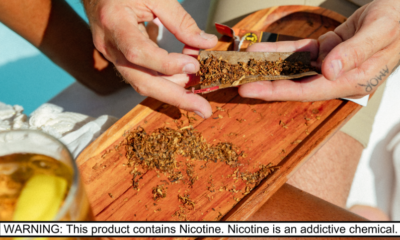

Find special offers on Al Capone Premium Natural Leaf Wraps at a store near you
-


If The FDA Approves It, 5 Million Depressed Americans Could Benefit From a New Psychedelic Therapy
-


Maybe You Shouldn’t Watch Horror Movies While High
-


Quirky Information About The Goldfish Snack Name Change
-


The Most Popular Costume In Each State
Cannabis News
If The FDA Approves It, 5 Million Depressed Americans Could Benefit From a New Psychedelic Therapy
Published
6 hours agoon
October 25, 2024By
admin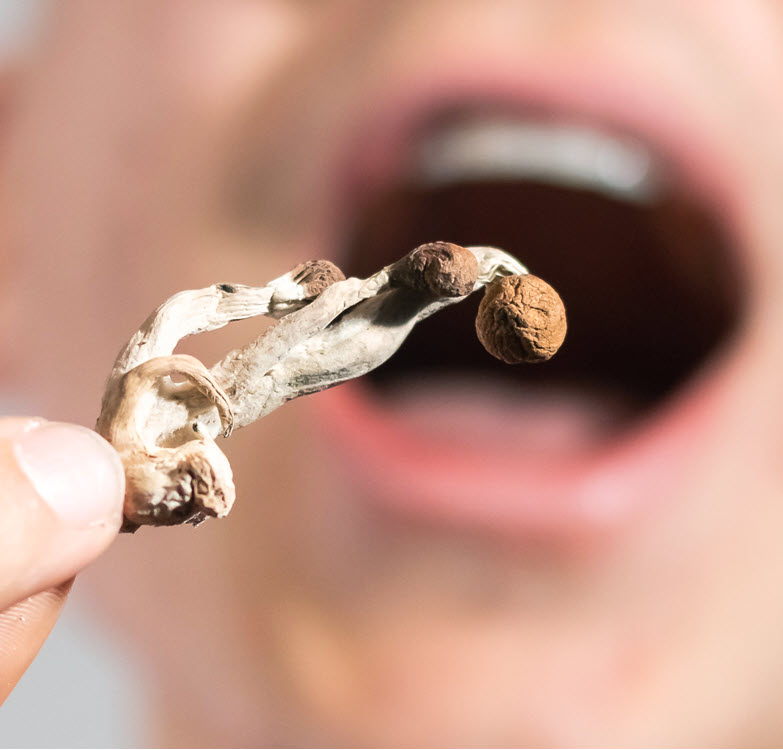
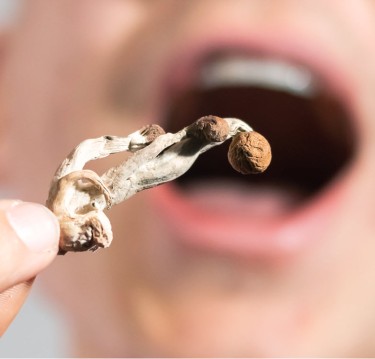
With millions of people around the world suffering from depression, it’s a seriously worrying condition that affects countless families and societies as a whole.
It’s also still so highly stigmatized, hindering people from seeking help, a proper diagnosis, and treatment. And for those who do get treated, recovery may be futile. That’s because depression is so multifaceted – and it is such a complex condition. There are several social, familial, environmental, and biological factors at play at any given time. In addition, factors such as genetics, trauma, stress, and substance use also play a role.
When it comes to treating depression, responses are highly individual too. A medication and dosage that works well for some, may not work as well for others. Additionally, individuals with co-existing conditions including PTSD and anxiety, or people with specific genetic differences and brain chemistry, will respond differently to pharmaceutical medications. Even those who do respond, may find it takes a long time to work – and antidepression medications are notorious for their harmful side effects.
Enter: Psychedelic Mushrooms For Depression
Over the last few years, psychedelic drugs have become increasingly popular for their ability to effectively manage treatment-resistant mental health disorders including depression. Thanks to a growing acceptance of the therapeutic potential of psychedelics, individuals suffering from depression now have more hope than ever with a safe, natural choice.
And while there are many popular psychedelics to choose from, it’s none other than the psilocybin magic mushrooms which are the most famous of all. It’s also the most well-researched out of all other psychedelics whne it comes to depression, and there is a solid body of research proving its efficacy for treatment-resistant depression.
During a recent study from Emory University, UC Berkeley, and the University of Wisconsin-Madison, investigators sought out to better understand the demand for psilocybin therapy focusing on depression in the United States. The researchers analyzed data on the prevalence of depression, which were taken from national polls. From this data, they determined that roughly 5 million Americans would meet the criteria for psilocybin therapy if it were ever to be approved.
“Our findings suggest that if the FDA gives the green light, psilocybin-assisted therapy has the potential to help millions of American who suffer from depression,” explained Syed Fayzan Rab, the study’s lead author and an Emory MD candidate in a press release. “This underscores the importance of understanding the practical realities of rolling out this novel treatment on a large scale,” he said. The figures are also based on the FDA’s inclusion criteria taking into consideration factors such as regional variation, insurance coverage, and variability.
“While our analysis is a crucial first step, we’ve only scratched the surface in understanding the true public health impact psilocybin therapy may have,” explained Charles Raison, one of the study’s collaborators. Raison is also a lead researcher for one of the biggest clinical trials studying psilocybin therapy for depression. “Ultimately, the realizable potential of this treatment rests in the hands of regulatory bodies, policymakers, insurers, and the healthcare community at large,” he added.
“It’s our hope that these findings spur productive discussions and proactive preparations to optimize the benefit to patients while minimizing unintended consequences,” he said.
Why Psilocybin-Assisted Therapy Is Promising
There are many ways one can medicate with psilocybin. Some cosmonauts who already have had previous experience with recreational or spiritual use of psychedelics may feel confident enough to engage in psilocybin therapy through standard dosing or microdosing; there are several well-established protocols that one can utilize to do so safely without supervision of a medical professional.
However, for individuals who suffer from severe and treatment-resistant depression, psilocybin-assisted therapy may be the better route. It involves the administration of psychedelics (in this case, psilocybin mushrooms) under the supervision of a medical professional. Basically, it’s like replacing conventional antidepressant drugs with psilocybin mushrooms; in either case you’d be monitored by your doctor and you can participate in psychotherapy sessions with them while taking the drug.
Psilocybin Even More Effective Than Antidepressants?
Not only is there an increasingly solid body of research proving the efficacy of magic mushrooms, but now the studies also say that they’re safer and more effective than antidepressants. And when you combine it with the fact that it has little to no side effects, who wouldn’t want to take psilocybin magic mushrooms for depression?
A recent study demonstrated just this.
Researchers at the Centre for Psychedelic Research at Imperial College in London found that taking magic mushrooms were more successful at treating depression compared to the widely prescribed SSRI antidepressants. For the study, they focused on escitalopram, an SSRI antidepressant, and psilocybin.
“This is important because improving connectedness and having greater meaning in life can significantly enhance a person’s quality of life and long-term mental health,” explained David Erritzoe, the study’s co-first author and a clinical director at the Imperial College in London.
“The study suggests that psilocybin therapy might be a more holistic treatment option for depression, addressing both the symptoms of depression and overall well-being. This could make a substantial difference in the overall happiness and daily activities of those suffering from depression, providing a more joined-up approach to mental health treatment,” Erritzoe added.
The study’s authors also reported that the patients who were in psilocybin therapy reported better outcomes compared to those who were being treated with escitalopram.
Conclusion
There’s no doubt that psilocybin therapy already helps so many people with depression and other mental health conditions – imagine if the FDA approved psilocybin-assisted therapy? We hope this is the kind of medical and regulatory breakthrough we can look forward to in the near future – stay tuned!
PSYCHEDELICS FOR DEPRESSION BEGINS, READ BELOW…
Cannabis News
Oregon Cracks Down on THC Inflation and Testing Labs
Published
1 day agoon
October 24, 2024By
admin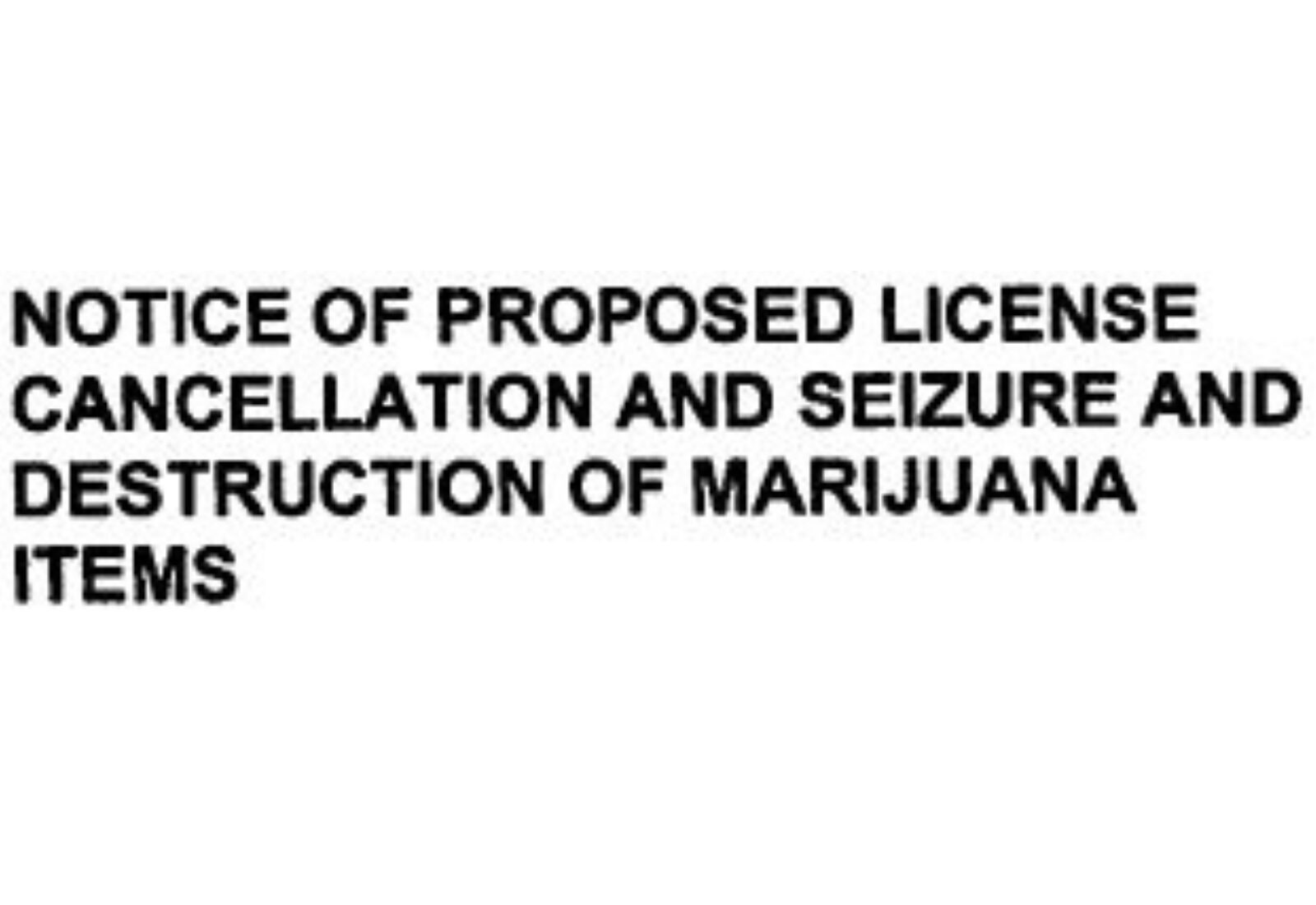
On September 25th, the Oregon Liquor and Cannabis Commission (OLCC) sent notices to seven licensed testing laboratories, proposing license cancellation in some cases and suspension or fines in others. The notices center on alleged THC inflation, and extend back to instances identified in 2023. We only have eleven labs in Oregon accredited to do this mandatory work, so OLCC chasing seven of them is a big deal.
This story broke yesterday afternoon in the Portland Business Journal (“Journal”). See: Oregon cannabis labs face shutdown in testing crackdown. I’m guessing that link is paywalled for most of our readers, so I’m glad to have this platform to share some thoughts below.
The proposed suspension and cancellation notices
An obvious question here is why OLCC has proposed to expel some of these licensees, but only suspend or fine others. We’re talking about Category I violations across the board, after all, and the default sanction for any Category I violation is license revocation.
Here, though, the Commission seems to be looking at conduct in two distinct camps: a) conduct that simply could be negligence (and specifically, lazy sampling); and b) attempts to rig results by adulterating products. All seven labs got dinged on “a”, while three also got dinged on “b.”
In the “a” notices, charges include: i) failures to ensure an entire batch of marijuana was available for sampling, and ii) insufficient sampling increments. In the “b” notices, OLCC alleges that “the Licensee’s employees, agents or representatives intentionally added a cannabinoid concentrate, kief [], to the samples taken for testing.” Which is not great.
A long time coming
Controversy around cannabis testing is an old story in Oregon. Prior to OLCC regulation, we had “medical marijuana” from 1998 to 2014 with no testing requirements whatsoever. In 2014, after dispensary licensing commenced, the Oregon Health Authority (OHA) issued poorly-written testing rules that no one really followed. In those days lab shopping was common, dozens of harmful pesticides were allowed, and OHA didn’t even have the authority to regulate producers or labs, anyway.
In 2015, the Oregonian published a landmark investigative piece called “A Tainted High” exposing all of this and more. In 2016, the OLCC program launched, with more testing rules and more enforcement authority, at which point a serious testing bottleneck ensued. Once things cleared up, focus shifted to microbiological and heavy metal contaminants, alongside inflated THC numbers. In 2019, the Secretary of State recommended shelf audits at dispensaries, which eventually did occur.
The latest noise around testing was the aspergillus litigation, where the Cannabis Industry Alliance of Oregon (CIAO) won a temporary stay of enforcement on testing for that mold, and OHA abandoned rules on the topic. In 2023, we also got House Bill 2931, which creates a state-run cannabis reference lab. In June of last year, I wrote:
Why did everyone, including industry, feel a state cannabis reference lab was needed? First, for as long as the OLCC program has existed (and even before that, in the OHA medical program), agencies have fielded complaints from cannabis licensees around testing. Those complaints include allegations of labs spiking potency levels on test samples, and of labs falsifying failed test results. From there, you have the related concepts of “lab shopping” by licensees and “pay to play” testing with labs.
State agencies have argued that to properly regulate licensed labs, an independent mechanism to verify test results is needed. Audits have similarly recommended this. The newly created reference lab will provide: a) a neutral, third-party source for testing and re-testing; b) quality assurance review for licensed labs; and c) a mechanism to audit complaints from licensees about faulty lab testing. This is a positive development.
So, everyone has been looking at this for a while. And now we’re full circle on this inflated THC thing– a problem that is not unique to Oregon.
What happens next?
All of the OLCC labs that received the September 25th notices have until tomorrow, October 25th, to request a hearing before an administrative law judge. This is a critical deadline; hopefully all of them have done so. The rules also require an answer to be filed with any hearing request, but traditionally OLCC affords licensees up to two weeks prior to any prehearing conference to make the submission. (This is not advice.)
You’re here for the big question, though, which is: does OLCC plan to go to the mat on this, with massive fines, suspensions and license cancellations? I don’t think so, necessarily, but it’s obviously a case-by-case thing. Much will depend on the underlying testimony and reports; whether a lab owner knew what their employees were allegedly doing; how the licensees respond; etc. But as I told the Journal: “They can’t have no labs. OLCC may push for labs to come to them and say we’re sorry, it will never happen again, and show internal (standard operating procedures) and maybe creative solutions” in order to safeguard testing.
Is this just a problem for labs?
No. I told the Journal that “it’s not fair just to blame the labs.” And it’s not. With kiefing, in particular, the lab employees would have received the concentrate from customers in most or all cases. This behavior is ultimately driven by market pressures: for whatever stupid reason, the strongest weed tends to attract the most interest and highest prices. (Thankfully, alcohol doesn’t work this way.)
But I digress. Before signing off, I’d like to highlight one final quote I gave the Journal. It’s this: “They’re going after the labs, then the employees involved, then all the producers and wholesalers who are implicated. You saw the first wave, but you’re going to see more.”
Anyone else receiving a violation notice from OLCC will have the same opportunity to respond, and hopefully settle, as the labs. All of this will take some time to play out.
___________
If, in the coming weeks and months, you are one of the unfortunate licensees or permittees on the receiving end of an OLCC charging document, I recommend you start your reading here. Then, give us a call. We can help.
Cannabis News
Maternal Cannabis Use Does Not Lead to Higher Rates of ADHD or Behavior Disorders in Children Says New Massive Medical Study
Published
2 days agoon
October 23, 2024By
admin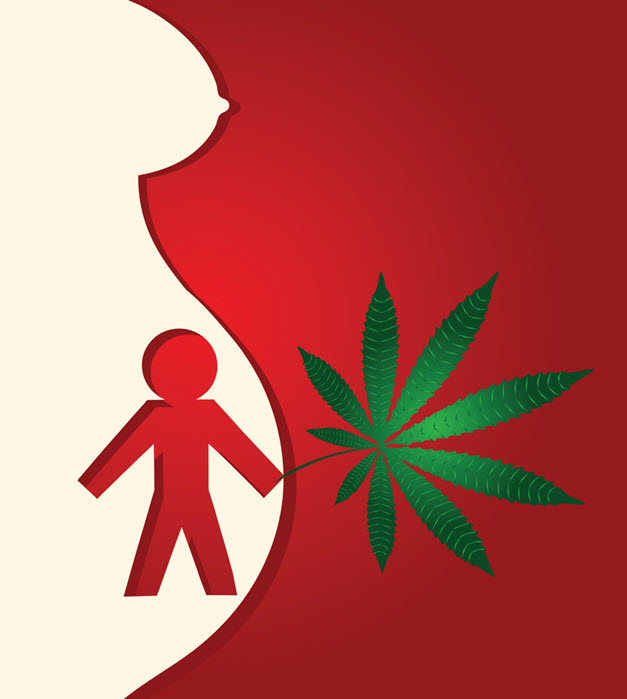
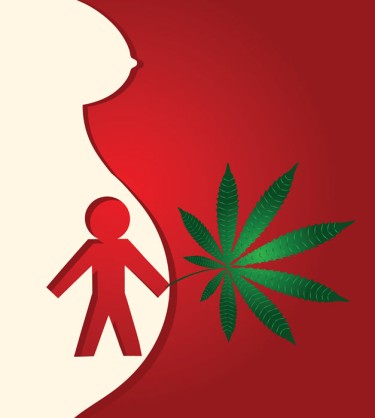
Let’s get one thing straight right off the bat: it’s generally best for expecting mothers to avoid consuming any substances during pregnancy. That’s just common sense. But as someone who’s watched his wife go through the miraculous and downright brutal process of pregnancy twice, I can tell you firsthand – growing a human ain’t no walk in the park.
Pregnancy is hardcore, period. You’re bloated, in pain, and your organs are literally rearranging themselves to make room for a tiny squatter. And don’t even get me started on morning sickness. For some women, it’s more like all-day, soul-crushing nausea that makes you wonder why our species hasn’t gone extinct yet.
It’s no wonder that for centuries, cannabis has been viewed as a natural remedy for these pregnancy woes. Our ancestors knew a thing or two about plant medicine, after all. But in recent decades, we’ve been bombarded with warnings that maternal cannabis use increases the risk of behavior disorders and ADHD in children. Scary stuff for any parent-to-be, right?
Well, hold onto your bongs, folks, because a new study is challenging that narrative. This isn’t some small-scale research either – we’re talking about a massive study involving over 100,000 participants. And guess what? They found no link between maternal cannabis use and an increased risk of ADHD or behavior disorders in offspring.
Now, before you start planning a pregnancy hotbox party, let’s take a deeper look at this study and what it really means. We’ll also compare the risk profiles of cannabis to some of the currently accepted medications for morning sickness. Because let’s face it, those pharma-approved pills aren’t exactly risk-free either.
So strap in, dear readers. We’re about to embark on a journey through the complex world of pregnancy, cannabis, and the ever-evolving landscape of medical research. It’s time to separate fact from fiction and give expectant mothers the information they need to make informed decisions about their health and the health of their future little ones.
First off, let’s talk scope. This isn’t some rinky-dink study done in a college dorm room (though those can be fun too). We’re looking at a behemoth of a research project that makes most studies look like a kiddie pool next to the Pacific Ocean.
The researchers, a team of brainiacs from Kaiser Permanente Northern California, the University of California, and The Permanente Medical Group, analyzed data from a whopping 141,570 children born to 117,130 pregnant individuals. That’s more people than the entire population of Topeka, Kansas, folks. The study covered births from 2011 to 2018, giving us a solid chunk of time to work with.
Now, here’s where it gets interesting. Of these 117,130 pregnant individuals, 4.6% screened positive for cannabis use during early pregnancy. That’s about 5,388 cannabis-using moms-to-be, if my back-of-the-rolling-paper math is correct.
So, what did they find? Hold onto your hats, because this might blow your mind: maternal prenatal cannabis use was not associated with an increased risk of offspring developing ADHD or disruptive behavior disorders (DBD). In fact, the adjusted hazard ratio for ADHD was 0.84, which is science-speak for “Nope, no link here.”
But wait, it gets even more intriguing. When it came to DBD, they actually found an inverse association. The adjusted hazard ratio was 0.83, suggesting that children of cannabis-using mothers were slightly less likely to develop disruptive behavior disorders. Now, before you start recommending pot for pregnant ladies, remember that correlation doesn’t equal causation. But it’s certainly food for thought.
Let’s hear it straight from the horse’s mouth. The study concludes, and I quote, “Maternal prenatal cannabis use was not associated with an increased risk of offspring ADHD or DBD.” That’s about as clear as it gets, folks.
Now, why is this important? Well, for starters, it challenges the long-held belief that cannabis use during pregnancy is a one-way ticket to behavioral issues for the kid. This study, with its massive sample size and rigorous methodology, provides some serious scientific firepower to counter those claims.
But here’s the kicker: the researchers aren’t saying “Go ahead and blaze it, preggo!” They’re quick to point out that while these findings are significant, they don’t suggest that marijuana use during pregnancy is risk-free. There’s still a lot we don’t know about the long-term effects of prenatal cannabis exposure.
What this study does do is open the door for more nuanced, evidence-based discussions about cannabis use during pregnancy. It gives us a solid foundation to question some of the fear-mongering that’s been going on and to push for more research in this area.
In the world of science, a study like this is like dropping a boulder in a pond. The ripples are going to be felt for a long time, potentially influencing everything from public health policies to individual decisions made by expectant mothers.
Now, I’m not here to bash Big Pharma (well, maybe a little), but let’s take a look at some of the common medications prescribed for morning sickness. It’s like a chemical alphabet soup, and the side effects? Well, they might just make you want to puke.
First up, we’ve got Doxylamine. Sounds fancy, right? It’s an antihistamine that’s often combined with vitamin B6 to combat nausea. But here’s the kicker: it can cause drowsiness, dizziness, and even movement disorders. Because that’s exactly what a pregnant woman needs – to feel like she’s stumbling around in a fog.
Then there’s Metoclopramide, a “promotility agent” that sounds like something you’d use to clean your toilet. It stimulates stomach and bowel movement, which is great if you want to spend even more time in the bathroom. Side effects? Oh, just little things like depression, anxiety, and tardive dyskinesia – a fun little condition that causes uncontrollable movements. Lovely.
For the overachievers in morning sickness, we’ve got Ondansetron. It’s often prescribed for hyperemesis gravidarum, which is fancy doctor-speak for “holy crap, I can’t stop puking.” But watch out for those pesky side effects like headaches, constipation, and oh yeah, potential heart rhythm problems.
Now, let’s talk about Mirtazapine. It’s an antidepressant that they pull out when nothing else works. Because apparently, the solution to not being able to keep food down is to take a drug that can cause increased appetite and weight gain. Makes perfect sense, right?
And for the grand finale, we’ve got Corticosteroids. These bad boys are reserved for severe cases, probably because their potential side effects read like a medical textbook’s index. We’re talking increased risk of gestational diabetes, preeclampsia, and low birth weight. But hey, at least you’re not nauseous anymore!
Now, here’s where things get interesting. The LD-50 (that’s the dose that’s lethal for 50% of test subjects) for these drugs ranges from about 500mg/kg to 1000mg/kg in rats. For cannabis? It’s estimated to be around 1260mg/kg when orally ingested. That’s higher than any of these pharmaceutical options.
So, let me get this straight. We’re okay with giving pregnant women drugs that can cause everything from movement disorders to depression to potential heart problems, but a plant that’s been used for centuries to combat nausea is off-limits? A plant that, I might add, has a higher LD-50 than these lab-created concoctions?
Look, I’m not saying cannabis is risk-free during pregnancy. We need more research, and every woman should make an informed decision with her doctor. But when I see the list of side effects for these “approved” medications, I can’t help but wonder: are we really making decisions based on health and safety, or are we stuck in a prohibition-era mindset?
It’s time we start asking some hard questions about our approach to morning sickness treatment. Why are we so quick to reach for the prescription pad when Mother Nature might have a gentler solution? Why is it okay to give pregnant women drugs with laundry lists of side effects, but not one that grows out of the ground?
I don’t have all the answers, folks. But I do know this: when it comes to pregnancy and cannabis, we need to cut through the fear-mongering and look at the facts. Because at the end of the day, what matters most is the health and well-being of mom and baby. And sometimes, the best medicine might just be the one that’s been growing in our backyards all along.
Source:
https://themarijuanaherald.com/2024/10/study-of-over-100000-finds-
maternal-marijuana-use-not-associated-with-increased-risk-of-adhd-or-behavior-disorders-in-children/
https://pubmed.ncbi.nlm.nih.gov/39400201/
PREGNANT AND CANNABIS, READ ON..

Fun Ways To Celebrate Halloween With Marijuana

Find special offers on Al Capone Premium Natural Leaf Wraps at a store near you

If The FDA Approves It, 5 Million Depressed Americans Could Benefit From a New Psychedelic Therapy

Maybe You Shouldn’t Watch Horror Movies While High

Quirky Information About The Goldfish Snack Name Change

The Most Popular Costume In Each State

Oregon Cracks Down on THC Inflation and Testing Labs

Make Autumn Awesome With The Best Oreo Cookie Hacks

Can An Air Purifier Get Rid Of The Marijuana Smell

Arizona court declines to void or reassign contested marijuana social equity permit

Distressed Cannabis Business Takeaways – Canna Law Blog™

United States: Alex Malyshev And Melinda Fellner Discuss The Intersection Of Tax And Cannabis In New Video Series – Part VI: Licensing (Video)

What you Need to Know

Drug Testing for Marijuana – The Joint Blog

NCIA Write About Their Equity Scholarship Program

It has been a wild news week – here’s how CBD and weed can help you relax

Cannabis, alcohol firm SNDL loses CA$372.4 million in 2022

A new April 20 cannabis contest includes a $40,000 purse

Your Go-To Source for Cannabis Logos and Designs

UArizona launches online cannabis compliance online course
Trending
-

 Cannabis News2 years ago
Cannabis News2 years agoDistressed Cannabis Business Takeaways – Canna Law Blog™
-

 One-Hit Wonders2 years ago
One-Hit Wonders2 years agoUnited States: Alex Malyshev And Melinda Fellner Discuss The Intersection Of Tax And Cannabis In New Video Series – Part VI: Licensing (Video)
-

 Cannabis 1012 years ago
Cannabis 1012 years agoWhat you Need to Know
-

 drug testing10 months ago
drug testing10 months agoDrug Testing for Marijuana – The Joint Blog
-

 Education2 years ago
Education2 years agoNCIA Write About Their Equity Scholarship Program
-

 Cannabis2 years ago
Cannabis2 years agoIt has been a wild news week – here’s how CBD and weed can help you relax
-

 Marijuana Business Daily2 years ago
Marijuana Business Daily2 years agoCannabis, alcohol firm SNDL loses CA$372.4 million in 2022
-

 California2 years ago
California2 years agoA new April 20 cannabis contest includes a $40,000 purse



